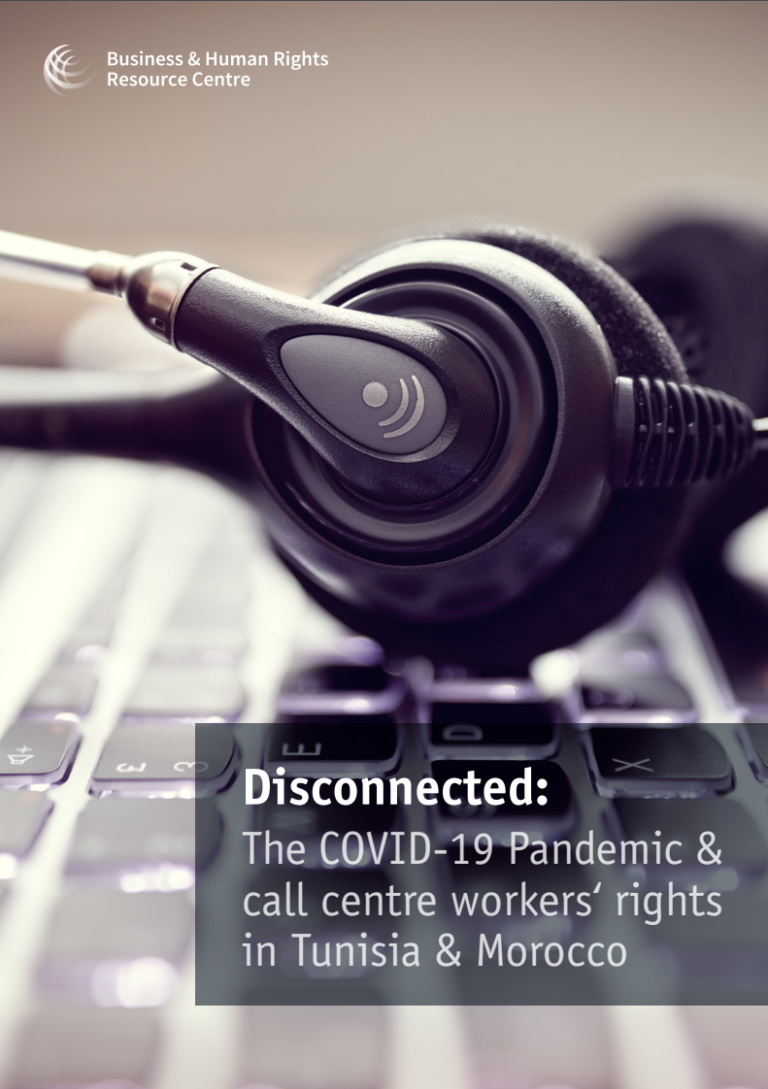The global spread of COVID-19 has prompted unprecedented measures to contain the virus, including the temporary shutdown of business and widespread restrictions on movement. Around the world, travel plans and workplaces have been disrupted and work habits changed. Yet throughout the pandemic, it has been business as usual for some offshore call center agents in Tunisia and Morocco, who continued handling calls and queries on behalf of multinational companies to serve the needs of clients and customers abroad. This briefing summarizes some of the key human rights risks to workers in this sector, and considers the steps taken by ten call centers operating in and six clients outsourcing services to Tunisia and/or Morocco to protect workers amidst the crisis. We found that the pandemic has exacerbated systemic risks of economic hardship, psychological strain – due to long hours under constant surveillance, verbal abuse and stress – and introduced new risks linked to health hazards amid the virus. Similar concerns have been reported in other parts of the world, including South Korea, the US and Brazil, underscoring the endemic, transnational nature of these risks, which have long been a reality for many call center workers. The briefing also outlines recommendations for companies to address these

